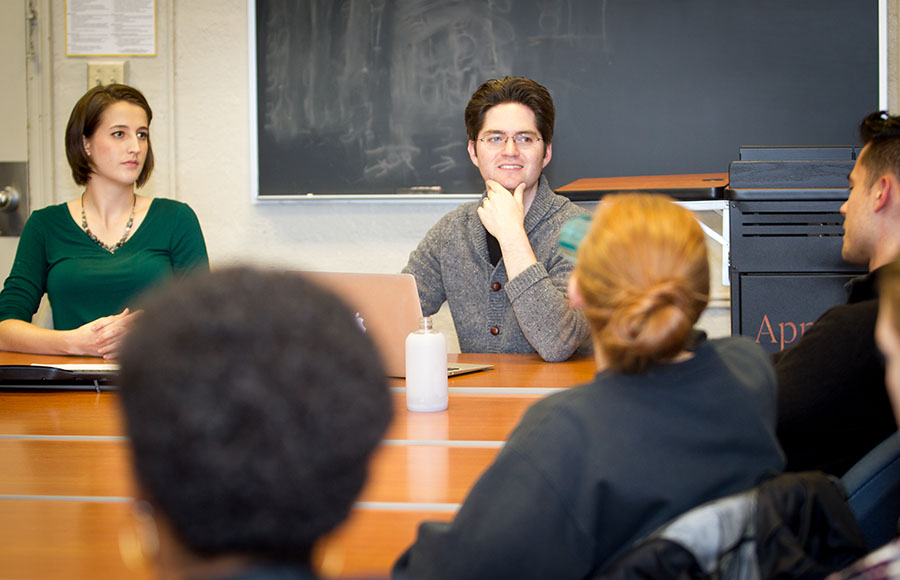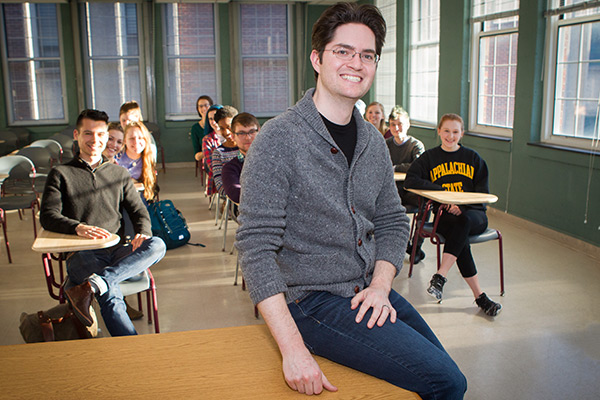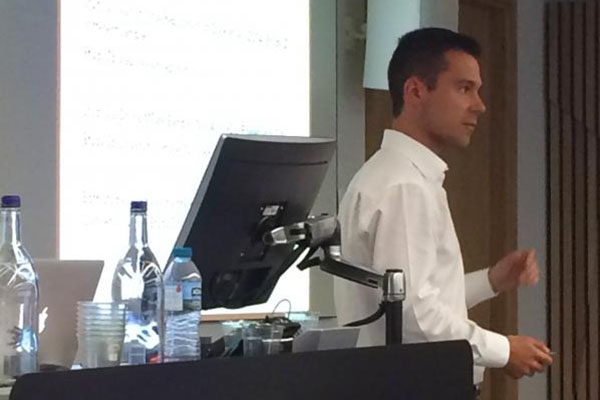BOONE, N.C. — People who value following purity rules over caring for others are more likely to view gay and transgender people as less human, which motivates prejudicial feelings and support for discriminatory public policies, according to a new study published by the American Psychological Association.
Dr. Andrew Monroe, an assistant professor in Appalachian State University’s Dr. Wiley F. Smith Department of Psychology, is the lead author of “The Dark Side of Morality: Prioritizing Sanctity Over Care Motivates Denial of Mind and Prejudice Toward Sexual Outgroups,” published Dec. 20, 2018, in the Journal of Experimental Psychology: General.
“After the Supreme Court decision affirming marriage equality and the debate over bathroom rights for transgender people, we realized that the arguments were often not about facts but about opposing moral beliefs,” Monroe said. “Thus, we wanted to understand if moral values were an underlying cause of prejudice toward gay and transgender people.”
Monroe and his co-author, social psychologist Dr. Ashby Plant, of Florida State University, focused on two specific moral values: what they called sanctity, a strict adherence to purity rules and disgust over acts that are considered morally contaminating; and care, which centers on the disapproval of others who cause suffering without just cause. They predicted those values might be behind the often-heated debates over LGBTQ rights.
The researchers conducted five experiments, with nearly 1,100 participants, examining the relationship between moral values and prejudice. Overall, they found that people who prioritized sanctity over care were more likely to believe that gay and transgender people, people with AIDS and prostitutes were more impulsive, less rational and, therefore, something less than human. These attitudes increased prejudice and acceptance of discriminatory public policies, according to Monroe.
Conversely, people who endorsed care over sanctity were more likely to show compassion for those populations, as well as support public policies that would help, the researchers found.
“The belief that a person is no better than an animal can become a justification for tolerating and causing harm,” Plant said. “When we believe that someone lacks self-control and discipline, we may make moral judgments about their life choices and behaviors, which can lead down a dark path of discrimination and hate.”
Possible implications
Research into LGBTQ prejudice is relevant, Monroe said, citing North Carolina’s loss of revenue as a result of its 2016 House Bill 2, which placed restrictions on restroom use by transgender individuals, and the Trump administration’s seeking of a ban on transgender military service.
Monroe said the first step to curing prejudice is to understand how it functions. Therefore, a possible implication of these findings, he said, is that understanding a root cause of prejudice can lead to ways to address prejudice.
“Our study suggests that a person’s moral values can be altered, at least temporarily, and that highlighting certain values, like caring, can be an effective way to combat prejudice,” he said.
Participants exhibited this shift in the final experiment, during which their care values were primed by researchers through a radio news clip on the importance of safe spaces for people of color, while in the control condition, participants listened to a clip about Brexit.
“We hope that by showing the moral roots of bias and discrimination against sexual and gender minorities we encourage others to conduct further research to increase equity and inclusion,” Monroe said.
Applying moral differences to other issues
The authors’ research into moral values can be a framework to explain other phenomena, according to Monroe.
In a similar study underway at Appalachian, Monroe is exploring how differing moral values are at play in debates regarding NFL players taking a knee during the playing of the national anthem.
“Likewise, we’re finding people who value respect for authority over fairness get upset and describe the players as ‘ungrateful’ and ‘disrespectful’ while those who value fairness more than respect for authority view the players’ protests as meaningful,” he said.
Understanding differences in moral values might help people have more constructive conversations about these and other challenging issues, Monroe said.
“How do we morally communicate? It can be in very different ways because we speak different moral languages. People’s understanding of facts differ based on their moral values.”
About the Dr. Wiley F. Smith Department of Psychology
Appalachian State University’s Dr. Wiley F. Smith Department of Psychology serves more than 1,400 undergraduate majors seeking the Bachelor of Arts or Bachelor of Science degree in psychology, as well as 90 graduate students across four graduate programs: experimental psychology (MA), industrial-organizational psychology and human resource management (MA), school psychology (MA/SSP) and clinical psychology (PsyD). Learn more at https://psych.appstate.edu.
About the College of Arts and Sciences
The College of Arts and Sciences (CAS) at Appalachian State University is home to 17 academic departments, two centers and one residential college. These units span the humanities and the social, mathematical and natural sciences. CAS aims to develop a distinctive identity built upon our university's strengths, traditions and locations. The college’s values lie not only in service to the university and local community, but through inspiring, training, educating and sustaining the development of its students as global citizens. More than 6,800 student majors are enrolled in the college. As the college is also largely responsible for implementing App State’s general education curriculum, it is heavily involved in the education of all students at the university, including those pursuing majors in other colleges. Learn more at https://cas.appstate.edu.
About Appalachian State University
As a premier public institution, Appalachian State University prepares students to lead purposeful lives. App State is one of 17 campuses in the University of North Carolina System, with a national reputation for innovative teaching and opening access to a high-quality, cost-effective education. The university enrolls more than 21,000 students, has a low student-to-faculty ratio and offers more than 150 undergraduate and 80 graduate majors at its Boone and Hickory campuses and through App State Online. Learn more at https://www.appstate.edu.
What do you think?
Share your feedback on this story.














